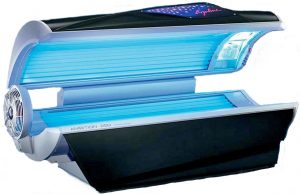Vitamin D levels: sufficient for winter? By Marc Sorenson, EdD
 Vitamin D levels and sunshine are exceptionally important to human health, and therefore we should be aware of vitamin D science. The Vitamin D Society of Canada is always at the forefront of the research on vitamin D levels and sunlight. And, they deliver press releases to keep people from Canada (and the world) apprised of new and important findings. Hence, I would like to comment on the salient points of their latest release. As I do so, it is especially relevant to note that vitamin D levels are surrogate measures for sun exposure.
Vitamin D levels and sunshine are exceptionally important to human health, and therefore we should be aware of vitamin D science. The Vitamin D Society of Canada is always at the forefront of the research on vitamin D levels and sunlight. And, they deliver press releases to keep people from Canada (and the world) apprised of new and important findings. Hence, I would like to comment on the salient points of their latest release. As I do so, it is especially relevant to note that vitamin D levels are surrogate measures for sun exposure.
The relationship of vitamin D to sun exposure
Ninety percent of vitamin D levels in the blood is due to sun exposure.[1] The UVB portion of sunlight stimulates vitamin D production in skin. Therefore, a UVB light source, which produces vitamin D levels, is the best source in winter. Remember also that the press release information is true for the world, not just Canada.
Salient points about vitamin D levels and sunlight: breast cancer
- First of all, consider a breast-cancer study published in the scientific journal, Plos One.[2] It showed that women with the highest vitamin D levels had a reduced breast-cancer risk. Most noteworthy, women with levels > 60 ng/ml had 82% reduced risk, compared to those with levels < 20 ng/ml. Furthermore, there was a dose-response decrease. For each increase in vitamin D levels, there was a concomitant decrease is breast-cancer risk.
Vitamin D levels and Breast Cancer
- Since we mentioned that vitamin D is produced by sun exposure, we should mention an Iranian sunlight-breast cancer study. In Iran, among women who totally avoid sun exposure, there is a 10-fold increase breast cancer risk.[3] That is an especially relevant fact for women who believe they should avoid the sun! And remember, melanoma is also reduced in those who are regularly exposed to sunlight.[4]
Another Vitamin D levels- and sunlight-deficiency cancer
- It seems like if breast cancer is reduced by high vitamin D levels, the same relationship could exist for other cancers. Hence, the press release mentioned colorectal cancer as the second disease associated to low vitamin D levels or low sun exposure. And, it mentioned another important piece of research.[5] Participants with vitamin D levels below 12 ng/ml had a 31% higher risk of colorectal cancer. Those with levels above 30 ng/ml had a 27% reduced risk.
Other disorders associated with vitamin D levels
In addition, the press release mentions four other disorders where higher vitamin D levels reduce risk or improve the condition. The disorders: diabetes (81% reduced risk), multiple sclerosis (45% reduced risk), preterm birth (62% reduced risk) and poor cognitive function. As to cognitive function, those who spent the most time outdoors with the least sun protection, had better cognitive function.
Finally, this is an excellent press release regarding vitamin D levels and sunlight. I strongly suggest you read it. http://www.vitamindsociety.org/press_release.php?id=60 Also, see the previous blog regarding the vitamin D Society and vitamin D levels: http://sunlightinstitute.org/vitamin-d-canada-warning/
Vitamin D and sunlight are sine qua nons for health, and so are proper nutritional habits. Happy health! Be sure to read my book, Embrace the Sun, available at Amazon. 
[1] Reichrath J. The challenge resulting from positive and negative effects of sun: how much solar UV exposure is appropriate to balance between risks of vitamin D deficiency and skin cancer? Prog Biophys Mol Biol 2006;92(1):9-16
[2] McDonnell SL, Baggerly CA, French CB, Baggerly LL, Garland CF, Gorham ED, Hollis BW, Trump DL, Lappe JM. Breast cancer risk markedly lower with serum 25-hydroxyvitamin D concentrations ≥60 vs <20 ng/ml (150 vs 50 nmol/L): Pooled analysis of two randomized trials and a prospective cohort. PLoS One. 2018 Jun 15;13(6).
[3] Bidgoli SA, Azarshab H. Role of vitamin D deficiency and lack of sun exposure in the incidence of premenopausal breast cancer: a case control study in Sabzevar, Iran. Asian Pac J Cancer Prev. 2014;15(8):3391-6.
[4] Vågero D, Ringbäck G, Kiviranta H. Melanoma and other tumors of the skin among office, other indoor and outdoor workers in Sweden 1961–1979. Brit J Cancer 1986;53:507–12.
[5] McCullough ML, Zoltick ES, Weinstein SJ, Fedirko V, Wang M, et al. Circulating Vitamin D and Colorectal Cancer Risk: An International Pooling Project of 17 Cohorts. J Natl Cancer Inst. 2018 Jun 14.
By Marc Sorenson, EdD, Sunlight Institute…
An impressive research paper on colorectal cancer demonstrates that both vitamin D supplementation and ultraviolet-light (UV) exposure are effective in reducing that cancer.[1] To begin the research, mice that are bred to be susceptible to intestinal tumors were put on a vitamin D-deficient diet, which reduced vitamin D levels significantly and spurred the development of non-cancerous tumors. Then, the diseased animals were either supplemented with vitamin D, or exposed to UV radiation. Remember that UV is the type of non-visible radiation produced by the sun.
In both cases (vitamin D supplementation and UV exposure), the area covered by tumors was significantly reduced. However, only UV exposure reduced the progression of the tumors to malignancy (full-fledged cancer).
The authors made the following statement regarding their somewhat surprising finding:
“Mortality from colorectal cancer decreases as ambient levels of UV radiation increase, suggesting that UV exposure is critical to the prevention of the disease. This study demonstrates the biological plausibility in mice of a causal relationship between moderate chronic UV irradiation or vitamin D supplementation and an impairment of outgrowth of primary intestinal cancer. While both UV irradiation and vitamin D supplementation decreased the overall area covered by tumors, only UV exposure inhibited malignant progression” [emphasis mine].
The Garland brothers in 1980 demonstrated that Sun exposure was inversely associated with colon cancer.[2] They assumed that sun-stimulated vitamin D was the mechanism that caused the inverse association, but it now seems that sun exposure has cancer preventive mechanisms beyond vitamin D.
Remember: sunlight alone will always be better than vitamin D alone, because there are many healthful chemicals, beyond vitamin D, that are produced by sun exposure.
[1] Heggert Rebel, Celia Dingemanse-van der Spek, Daniela Salvatori, Johannes P.T.M. van Leeuwen, Els C. Robanus-Maandag and Frank R. de Gruijl. UV exposure inhibits intestinal tumor growth and progression to malignancy in intestine-specific Apc mutant mice kept on low vitamin D diet. Int J Cancer. 2015 Jan 15;136(2):271-7.
[2] Garland CF, Garland FC. Do sunlight and vitamin-D reduce the likelihood of colon cancer? Int J Epidemiol 1980;9:227–31.
